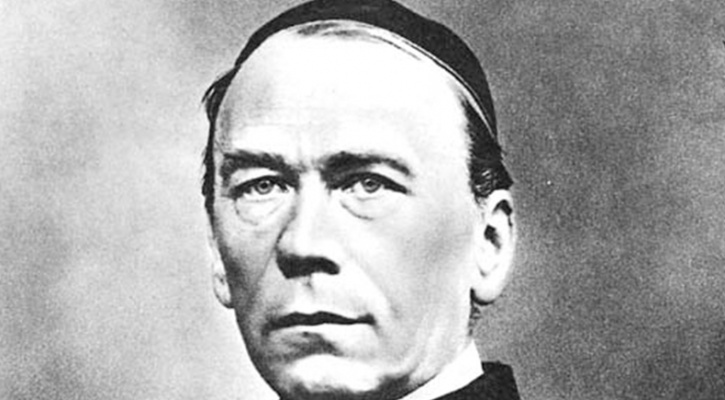Saint of the day for 10 December: the story of Blessed Adolph Kolping

Saint of the day for December 10nd
(8 December 1813 - 4 December 1865)
The story of Blessed Adolph Kolping
The rise of the factory system in XNUMXth-century Germany brought many single men to cities where they faced new challenges to their faith. Father Adolph Kolping began a ministry with them, hoping they would not get lost in the Catholic faith, as was happening to workers elsewhere in industrialized Europe.
Born in the village of Kerpen, Adolph became a shoemaker at an early age due to his family's economic situation. Ordained in 1845, he served young workers in Cologne, establishing a choir, which in 1849 became the Young Workers' Society. A branch of this began in St. Louis, Missouri, in 1856. Nine years later there were more than 400 Gesellenvereine - a blue-collar company - worldwide. Today this group has over 450.000 members in 54 countries around the world.
More commonly called the Kolping Society, it emphasizes the sanctification of family life and the dignity of work. Father Kolping worked to improve the conditions of the workers and greatly helped those in need. He and San Giovanni Bosco in Turin had similar interests in working with young people in large cities. He told his followers: "The needs of the times will teach you what to do." Father Kolping once said, "The first thing a person finds in life and the last to which he reaches out his hand, and the most precious thing he has, even if he doesn't realize it, is family life."
Blessed Adolph Kolping and Blessed John Duns Scotus are buried in the Cologne Minoritenkirche, originally served by the Conventual Franciscans. The international headquarters of the Kolping Society is located opposite this church.
Kolping members traveled to Rome from Europe, America, Africa, Asia and Oceania for the beatification of Father Kolping in 1991, the 100th anniversary of Pope Leo XIII's revolutionary encyclical "Rerum Novarum" - "On the order social". Father Kolping's personal testimony and apostolate helped prepare the encyclical.
Reflection
Some thought that Father Kolping was wasting his time and talent on young workers in industrialized cities. In some countries, the Catholic Church was seen by many workers as an ally of the owners and an enemy of the workers. Men like Adolph Kolping proved this was not true.